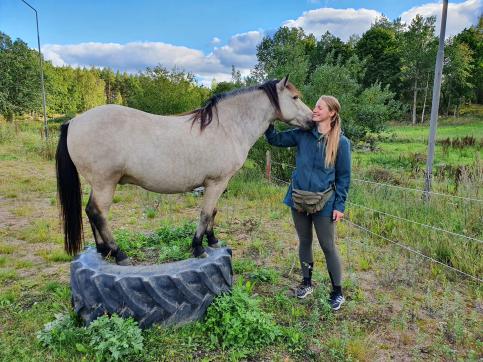Background and aims
Introduction

Horses are mainly trained using negative reinforcement, where an aversive stimulus is used to elicit a response. However, a growing body of evidence suggests that positive reinforcement, where a desired behaviour is shaped using the addition of a reward such as food, is an equally or more efficient training method.
Positive reinforcement training has been shown to improve the horse-human relationship, as horses trained with this method show increased contact-seeking behaviour towards unfamiliar persons and a more positive attitude towards their trainer.
Furthermore, horses trained with positive reinforcement are more motivated to participate in the training, show more exploratory behaviours, learn a task faster and remember it for longer compared to horses trained with negative reinforcement. In addition, they show fewer behavioural signs of stress and more signs associated with positive emotions.
Behavioural and physiological measures of stress are commonly used as a proxy for negative emotions, and chronic stress levels could cause a prolonged negative emotional state in the horse, compromising welfare. Several studies have explored emotional states in horses through cognitive bias tests. Interestingly, horses that experience an improvement in welfare, for example those rescued or previously kept in social isolation, show a more optimistic attitude than horses kept in an environment of continuous high welfare.
Aims of the study
There is still limited research on the effects of different training methods on horse welfare parameters over time. Therefore, the aim of my study was to determine any long-term effects of regular positive reinforcement training on stress levels, optimism and the horse-owner relationship using a combination of behavioural tests, hair cortisol sampling and owner-completed questionnaires.
Responsible for this page:
Director of undergraduate studies Biology
Last updated:
05/17/21
